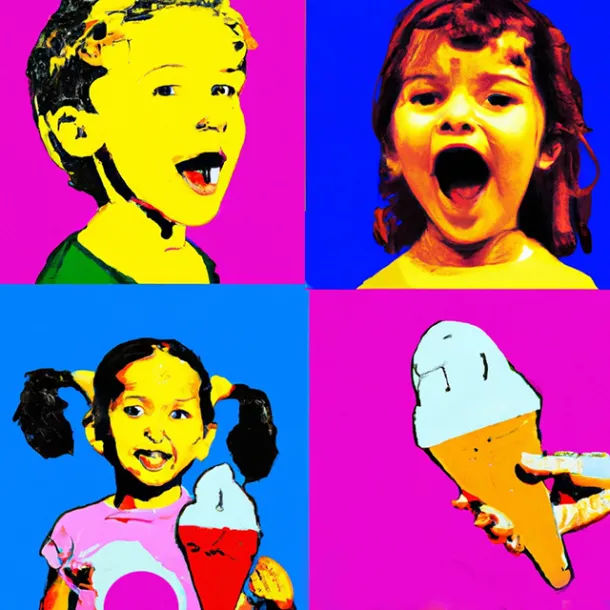Starting in 1994, Robert Just founded three groups to help heal communities under the banner of Concerned Families. One of their projects, begun in 2012, served 10,000 children out west and was launched here in New York City in 2019. Their efforts have been lauded both locally and nationally and announced in the 2020 Congressional Record. Journey article 1st published June 26, 2023 5:55 AM
Most New Yorkers agree that crime is a serious problem. Some can move elsewhere if they want, but the rest of us will either suffer alone or join together to find a way to reclaim our neighborhoods.
Of course, we who stand our ground against crime will need the New York Police Department to stand fully with us. That will be the hardest part, considering the reality of broken trust, starting several years ago but exploding in 2020 when over 35,000 NYPD officers were blamed for the horrifying actions of one bad cop – in Minnesota.
The gross unfairness of this collective blame is clear. But something must be done, beyond apologies and promises of more funding. Either we heal the injustices with real and enduring solutions, or we will leave New Yorkers trapped between anti-social criminals and a distrusting, risk-averse police force, leading only to more injustice with the poor suffering the most.
No matter what political promises are made to our police organizations, they know – and every cop on the beat knows – that one mistake is all it takes to have unholy hell descend on you and your family.
The NYPD needs a partner it can trust, but especially a partner that knows there must be healing of distrust on both sides. Only our churches can work effectively to make that happen since they are everywhere – and can inspire others too.
The key lies in finding a way for neighborhood churches and their local police precincts to stand together and face down the criminal element. Sadly, they might also need to face down the media and various community influencers who too often are the source of mistrust between neighborhood and precinct. This will only get worse as media technology makes it harder to know what is true and easier to influence others.
Confronting Crime and Incivility
Whatever the myriad causes of crime, the situation we face together cannot be resolved without at least understanding the resentment at the root of incivility. You may not be a police officer or a resident of the more violent neighborhoods, but each of us has similar smoldering hurts due to mistreatment.
All I need to do is to remember my genuine distrust of everything at age 15, and then imagine how that same angry and rebellious attitude would affect poor children with no father in the home, no safety in the streets, and no hope in or out of school.
From a child’s perspective, this level of brokenness cannot be overstated. Nor should we underestimate the impact on the community caused by a growing rage among our young.
Reconciled families are not a minor subject in the history of our faith. The Old Testament ends with a dire warning. It says that fathers must be reconnected to their children, or a great disaster will result.
See, I will send the prophet Elijah to you before that great and dreadful day of the LORD comes. He will turn the hearts of the fathers to their children, and the hearts of the children to their fathers; or else I will come and strike the land with total destruction.”malachi 4:5
For churches in cities with high-crime areas, the presence of many broken families should be a flashing red light.
I know the desperate loneliness of a boy missing his father. But I also know the joy that comes from the return of that father connection, which is a crucial part of what I propose here in a unique community form.
I lived as a broken child due to my own family’s troubles. My Manhattan “Prep School” privilege helped cover it up, but inside I was seething. In fact, I hated life. Television became my escape, and then drugs.
Because of my parent’s divorce, I spent 4 years in two boarding schools, from ages 5 to 9 years old, ending up at Pleasantville Cottage School, a home for emotionally troubled kids. For a child separated from his parents, those 4 years seemed like 4 lifetimes of fear, loneliness, confusion, and broken trust – despite the best efforts of the good adults caring for me.
My dad was a good man, but he had lost custody of me and had no part in my mother’s decisions. Of course, I blamed him, at least part of me did. It took me years to get past my resentment – and distrust of authority. We kids don’t understand these things. I felt abandoned.
Grownups in that situation do their best to show kindness to a child, but in my case it didn’t help much. I was always trying to run away. My authority-distrusting attitude kept me feeling so alienated that even true friendliness seemed fake to me. This self-destructive mindset would soon start changing thanks to the local police department.
A group of officers (all male back then) came to visit my school over the holidays, bringing us each our own white cardboard box filled with little toys, cookies, and candy. I sat there in wonder at this gift from complete strangers, holding it on my lap in full anticipation, while the men put on a show for us kids.
For an eight-year-old boy far away from his father, these big, burly men were more like “community fathers” – and there were lots of them – an undeniable good and loving authority. I was transfixed.
I realized at that moment that “father authority” was about something beyond my own father, a truth that eventually pointed me to a higher truth of a Heavenly Father.
Here, there was this huge group of amazing police officers who had come just for us – to comfort us like real fathers would– and deep down their “community fathering” meant the world to me. My recovery began right there. In fact, the power of that moment became the seed of a whole “community parenting” concept.
That concept would take form in 1994 when Concerned Fathers Against Crime was launched, later adding two other groups (Community Mothers and Community Youth), which all together became Concerned Families. Our goal went beyond working with law enforcement. We knew crime was not the only problem.
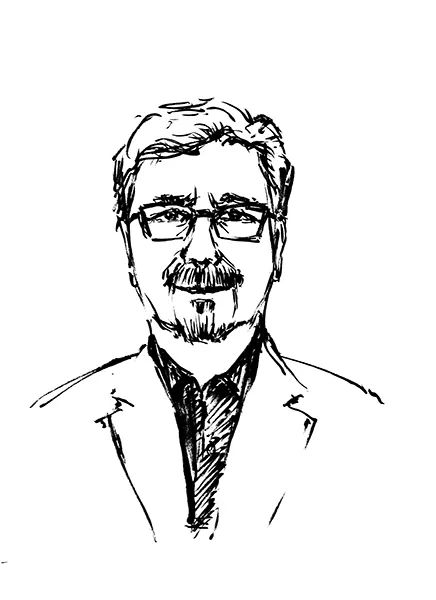
— Robert Just
Sketch by Darilyn Carnes/A Journey through NYC religions
Crisis: Overcoming Social Poverty
Over 15.8 million children live without a biological, step, or adoptive father in the home, according to a report by the U.S. Census. Thomas Edsall, an influential columnist for The New York Times, has detailed many studies that show the growing social impact on boys resulting from family troubles. Our neighborhoods bear witness to this – so do our prisons.
Girls are in trouble too! A recent Center for Disease Control report, covered by ABC News, presented a shocking picture of “record-high levels of sadness and violence.” It’s hard to imagine this describes the women – and mothers – who will build our future.
Even with a financial safety net, children with family trauma don’t bounce back easily. In fact, about one-third have contemplated suicide. These things are hard to face because we love our kids. But when presidents themselves address our family problems as Barack Obama did a few years ago, the painful truth must eventually be faced. There’s no safety net for those who fall into social poverty because of a damaged ability to relate to others.
“Loneliness is more than just a bad feeling,” our surgeon general said in his recent report. “It harms both individual and societal health.” In fact, according to that report, it can be deadly.
The hard data regarding America’s youth crisis is particularly vivid for Black youth, as described by Brown University economist Glenn Loury in his article “A Family Affair.” For decades Loury has warned that fatherlessness would exact a terrible price on us if we continued to do nothing about the problem. It seems that day has come.
Despite years of serious effort by good people to reach “at risk” children, that very term now seems incomplete. We are way beyond mere “risk.” We need “emergency rescue.”
Current efforts will continue, of course, but based on my own experience with childhood brokenness I know something greater is needed – something new!
Yes, we should reach one family, one child, at a time, given the chance. But “emergency rescue” requires bringing people together to reweave our social fabric. Somehow, “loving our neighbor” must become loving our neighborhood.
Family in community
Before COVID, one of our Concerned Families projects was serving about 10,000 students in only a few hours. The process is simple. Once a year, hundreds of adults go into schools to honor the kids with a communal birthday celebration. It touches them at a surprising level, whether they’re 7 or 17. Of course, kids don’t expect this kind of affection and appreciation coming from strangers. And that’s the point – the value of pure human connection.
To stop the flood of brokenness, we need a “counter flood” of connection, ideally one that flows through the community into every hopeless corner. What if we could powerfully demonstrate to kids a community version of the parental love that moms and dads uniquely express. Children know the difference and know they need them both – anaccepting love and a correcting love.
Of course, for decades now, single mothers have carried the heavy load of providing both types of love. It’s a nearly impossible burden to bear alone although many heroines do. Yet, there’s no denying that absent fathers leave a terrible void in a child’s heart.
The documentary “The Streets Were My Father” follows some deeply troubled Chicago kids who being fatherless took the wrong path to fill that void. Gang life was rough and dangerous, but it offered a sense of belonging and direction. Carlos Colon, a convicted murderer, looked back on his reasons, “What attracted me to the gang was actually just the unity. We all had something in common.”
But the documentary’s moment of truth comes at the end when Leslie Williams, clearly once an intimidating man, admitted his real longing as a tough black kid on the street. “I wanted, I desired – to have a father,” he said choking back his tears, “who would tell me that what I did was wrong.” I’m sure many in the audience shared his tears right then (I did), hearing his deep cry for a simple thing like a dad’s correcting love.
To fill this two-fold hunger for unity and fatherly authority, we seek to build what we call “family in community” (our motto) calling on community fathers to rise up and rescue boys like Carlos and Leslie and give them that sense of belonging. Of course, we need “community mothers” too as you’ll soon see – and “community youth” – but from our perspective, it starts with the dads. Think of the group “Dads on Duty,” covered movingly by CBS News. These dads clearly touch kids’ hearts with their fatherly presence in the hallways of their local high school, all to stop the growing number of fights. I’m sure the “community moms” are still proudly cheering on their men in that Shreveport, Louisiana neighborhood.
The Science of Community Revival
Several years ago, I got an excited call from a Christian leader who was interested in our community revival work, which had been receiving official praise both locally and nationally. He had just read a scholarly book called, Hardwired to Connect, and said it related directly to our efforts.
Subtitled “The New Scientific Case for Authoritative Communities,” the book explained that people have two essential human needs. They are “hardwired to connect” to each other and to a higher meaning in life.
The authors’ vision of “authoritative communities” focused on these two human needs as a guide to healing neighborhoods and supporting our youth.
That was the first time I heard the word “authoritative” used in the way these scientists and scholars meant it, as providing both structure and love – very distinct from “authoritarian,” which suggests only a demanding order.
Young people do need order, but along with it they need the kind of love that comes from connecting to other human beings and also to life’s highest truths (as in love God, love your neighbor). Our pastors know what results from a lack of these things. Crime, yes, but more, a growing incivility that slowly breaks the human spirit, including the spirit of our police officers.
Then came the summer 2020 of George Floyd.
Broken Trust – Our City in Crisis
These past years have caused a true crisis of community, a time of almost continual heartbreak, but especially for faith leaders who seek to rise above the anger and distrust to understand both sides of the law enforcement issue. We are past the worst of the anger, but we haven’t yet recovered from the political rejection of strong, smart policing or from the suffering that has followed.
The last election cycle found both political parties denouncing the idea of “defunding the police” while remaining entrenched in controversy about disputes regarding criminal justice that can only be settled by policymakers.
However, at ground level, we know two things for sure – that multigenerational fears and resentments toward law enforcement cannot be ignored. And that stigmatizing and delegitimizing the police only leads to more distrust, de-policing, and chaos.
Two newspaper covers in February summed up our city’s pressing need, both published the morning after the funeral of slain NYPD Officer Adeed Fayaz. The Daily News headlined “He Loved This City;” and The New York Post editorialized “This City Needs Its Good Fathers.”
How incredible – because together, they are practically a perfect prescription to heal our city.
New Yorkers who love our city hear the cries of injustice from both sides. We feel helpless but we know that somehow, we should be working together to make a difference. Local pastors understand the spiritual reality we face. They know we need to rebuild trust between our police officers and the people they serve. The question is how do we unite around our pastors – our historic peacemakers – to help them build those bridges? It starts with good community fathers.
Our Golden Triangle: Church – Family – Police
Although our “community fathers” approach is different, there’s nothing new about local churches and law enforcement working together. Just look at what’s called “the Boston Miracle.” That unique church/police relationship has thrived since the 1990s thanks to courageous pastors who refused to let the antisocial behavior of gangs be the last word. They countered it with prosocial behavior and by working across the board with other community stakeholders concerned about youth violence.
As described in an excellent documentary, in the 10 years following their launch, violent crime dropped by 80%. One of the stakeholders, Harvard criminologist David Kennedy (now with CUNY’s John Jay School of Criminal Justice) followed the process. “We know the things that make a really big difference. And it was Boston that created that understanding.”
Baylor University criminologist Byron Johnson, has also written extensively about “the Boston Miracle” in his book, More God, Less Crime. Johnson’s research focuses on how religion inspires prosocial behavior. His and others’ research strongly supports our approach to community transformation using the historic, prosocial family structure – fathers, mothers, and youth. By inspiring the churches and law enforcement to help bring “community fathers, mothers, and youth” together, we have the chance to create a team of “family in community” stakeholder individuals who will support the connection between the pastors and police officers, who are the two essential leaders in neighborhood transformation.
Ten years after founding Concerned Fathers Against Crime (C-FAC), we launched a second group called, Concerned Mothers Alliance for Children (C-MAC) and two years later, Concerned Youth (C-Y). At that point, the family was complete.
Each group had its own executive board and unique mission, but they remained interconnected and mutually honored as any family should be. Our plan was not only to nurture a direct relationship with law enforcement to fight crime, but also to express that relationship in a larger healing effort of community parenting.
The goal here is not just a safe and civil neighborhood but one that is “authoritative” and works to build young people into adult life. Kids, especially those “at risk,” need to know they “belong.”
Building Belonging Communities
From our Concerned Families perspective, it all starts with “community fathers” and their working relationship with law enforcement. Together they are full partners in this effort to build a sense of community belonging.
Of course, we started out meeting with police leadership. But our goal was to extend the community network all the way downward to the streets and the families who line the streets.
So, along with connecting to local church men, a key goal of C-FAC was to earn the respect of regular officers with our “eyes-and-ears-only” cellphone patrols. We wanted them to know they weren’t alone out there. We also knew leadership would never truly relax until the “rank and file” cop trusted us.
That trust actually came quickly as soon as patrol officers realized that we were there to support them and not to judge them. A few arrests based on our calls didn’t hurt either, and our “mobile neighborhood watch” concept started to take hold.
As community leaders themselves, police tend to know and respect folks who have a positive local impact. Many of our Concerned Fathers were recognized “influencers,” whether business owners, doctors, teachers, pastors, or plumbers. Of course, we all shared the same goal – making a difference either community-wide, or sometimes on a deeply personal level as those Pleasantville police officers did for me.
Belonging and a fatherly order
It doesn’t take much to change a young person’s life, something my father knew well. When Dad was about 10 years old, his father abandoned the family. Thankfully, a local business owner, Mr. Higger, was there to give Dad fatherly guidance in making key decisions, which ultimately led to a successful career playing flute for the Metropolitan Opera. Dad never forgot this kind man who stayed in his life and helped provide some real structure.
In turn, Dad never stopped fighting to stay in my life, despite the ugly divorce. The power of “fatherly presence” – whether a biological father or a spiritual father like Mr. Higger – can change a life or for that matter, a whole neighborhood. A 2021 newspaper editorial focused on some amazing data:
“Neighborhoods with more fathers are also safer than neighborhoods without them. Families with fathers appear to help establish a climate of order that makes entire communities less violent. That’s right — just the mere presence of more fathers in a neighborhood helps all children in the neighborhood.”
This reported “climate of order” is what we seek with one important thing added – the loving order of an “authoritative community” where hundreds of spiritual fathers joined by spiritual mothers rise up to become a permanent local presence, inspiring prosocial behavior among the youth by demonstrating it themselves.
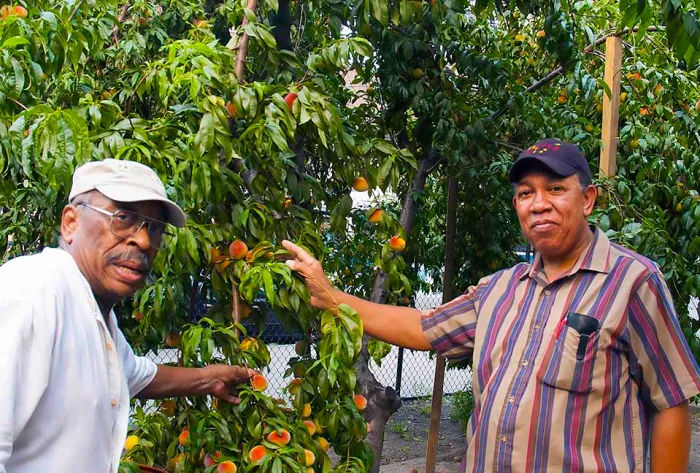
Going beyond our history of success
One NYPD precinct is already working with us on a project here in the city. But over the years since our founding in the Pacific Northwest, police chiefs, sheriffs, and other officials have honored our programs, praising our methods and results:
“While we in Grants Pass Dept. of Public Safety were initially apprehensive, this program has been a tremendous asset to our officers who police our fine city by helping to patrol and report suspicious activity.” Chief William O. Landis, 2015
“What is particularly unique is that C-FAC is the parent organization of two other like-minded groups – Concerned Mothers Alliance for Children (C-MAC) and Concerned Youth (C-Y) – all working as a family toward the same goal (public safety).” Sheriff Gil Gilbertson, 2007
We even started to get attention from national leaders:
“Reading and watching about C-FAC is truly an inspiration as you draw on local men and boys to help keep communities safe and secure. The Mobile Neighborhood Watch and Eyes and Ears Patrolling is just the start of how your program draws on American citizens to contribute to America’s homeland defense mechanism. Concerned Mothers Alliance and Concerned Youth also add to this inspirational initiative by engaging entire communities to help keep America safe.” Elizabeth Wiebe, Associate Director for Outreach, The White House Office of Faith-Based and Community Initiatives, 2007
“C-FAC creates a genuine sense of community connectedness. This has a substantial impact on the morale of not only its members (and their spheres of influence), but also on the morale of law enforcement personnel.” Congressman Greg Walden, 2005
Congressman Walden is right. Morale plays a pivotal role, and the early responses to our “community connectedness” work here in the city are inspiring. But no matter how New Yorkers react to this new approach, one thing most of us know for sure. We need a change in our NYC spirit because what’s happening now is not who we are. Anyone who loves New York and grew up here knows this. Mayor Adams’s recent comments prove the larger community concern. We need to “start to believe again.”
The Way to Change with help from the faith community
Building this “genuine sense of community connectedness” also prepares the way for churches to do what they do best, reach people with the Gospel that transforms lives and potentially whole neighborhoods. Answering the current need to improve community safety and civility can thus end up becoming much, much more.
Any pastor inspired by this vision can begin the process with a few “community fathers” in the congregation, choosing men whose passion for men’s ministry will encourage other men to gather at church and prayerfully explore the possibilities, a key first step made easier by showing the powerful documentary, “Fallen.”
The faith community has the great advantage of knowing that men and women are created with unique gifts, lovingly designed with power and purpose. I’ve seen childless women weep when they realize how much the community still needs their spiritual mothering gift. It’s an overwhelming truth.
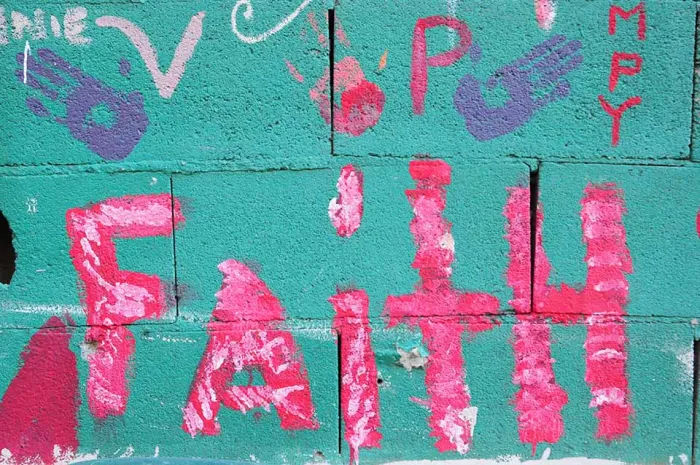
Practical Steps: Lots of People, Doing a Little
Our working method is “Lots of people, doing a little.” Any system designed for churches shouldn’t drain volunteer time from essential ministerial needs. We seek first the health of our churches so that then they can really answer the call to create prosocial communities.
But how can a church busy with all its many priorities succeed in creating a prosocial community neighborhood? By finding a way for people to do a simple thing together – lots of people – doing a little.
Our founding group Concerned Fathers Against Crime asked its members for only one community patrol in every 8-week cycle – two men per car, using their cellphones to connect to law enforcement. Of course, some NYC neighborhoods would use sidewalk patrols, but the point is to get out in the streets and learn what the police are up against. The more people involved, the more effective the system, allowing C-FAC members to prioritize and pray over the multiple areas of specific concern for the police as revealed by the CompStat data. Our system is designed for busy people – but ideally lots of them.
Concerned Fathers Against Crime can also help youth organizations and churches at special events by providing a “fatherly presence.” Patrolling a school with something like our Dads On Duty, or a homeless shelter or local subway stop might be possible as well. Law enforcement will sometimes have special requests, too.
For example, we were asked to blanket neighborhoods “under threat” from a serial arsonist. We came to call it our Sudden Watch Alarm Response Method – or S.W.A.R.M. It worked well. And demonstrated how this type of community parenting can be a “force multiplier” (eyes-and-ears-only) by establishing a fatherly presence as needed under proper authority (always under proper authority).
Community Mothers
The community mothers are asked for about two hours every 8-week cycle. Yes, that’s right, only two hours. Concerned Mothers Alliance for Children operates on the same principle as Concerned Fathers Against Crime. The system isn’t really based on time or labor. It’s based on the truly beautiful influence of loving parental authority – that is, “authoritative communities” where children are the primary focus. In fact, both groups can invite C-Y kids to work with them.
In their different ways, the Mothers seek to influence the local businesses and other stakeholders to help make the neighborhood more sensitive to children. Even small victories can inspire others to get involved. Out west the Concerned Mothers encouraged a supermarket chain (Kroger) to create a family-friendly checkout aisle so parents with little kids could avoid suggestive magazine covers. Success leads to success.
Imagine the powerful influence Moms can have on local businesses since usually they are the purchasers. Even a simple postcard can have impact, not to mention hundreds of them. Nevertheless, just as with the Fathers, C-MAC is not about power.
In early training with the women, we always said, despite any frustrations over incivility and injustice, we are a “loving mothers” movement. But when it comes to getting official attention or inspiring neighborhood action or simply saying, “Don’t forget the children,” a little influence can’t hurt. And standing with the Fathers multiplies that influence. Yet the key to all 3 groups is community-loving service, not power or influence. Truly, we are all in this together.
Community Youth
Concerned Youth (C-Y) [R] requires only 4 hours in every 8-week cycle, ages 10 to 18. It’s easy and fun, so of course, kids being kids, they’ll want to do more. We also get to rescue them from the digital world and reconnect them to people. Social media has become its own crisis, especially now with advances in artificial intelligence. Our best protection is human connection.
Out West before COVID hit, groups of kids did their C-Y patrols on Saturday mornings picking up litter, especially during the summer. We called the supervising adults our “Guardian Parents” – another opportunity for community parenting for those with youth experience. And again, only once every 2 months.
We honor our C-Y kids for many reasons, but above all because they are standing with concerned adults [S] to make a difference. Without the kids, it’s not quite a family. With them, it’s an explosion – and a chance to affect future generations.
Each Concerned Youth work crew moves through neighborhoods like blessed locusts, picking up everything in sight from cigarette butts to everyday trash. You can imagine the impact on store managers when a crowd of kids in their Blue Green C-Y shirts pass by and suddenly the sidewalk out front is spotless. Yes, sometimes it even meant a free Slurpee.
The initial goal is to give kids a chance to earn respect, in this case by showing diligence in small things. You can never underestimate the reaction of schools, local businesses, and other stakeholders when they witness even “at risk” youth seeking earnestly to be good adults. There aren’t many things in life more inspiring than that. But remember, C-Y is a youth group with a difference – they are part of a family. And greater opportunities and social capital come with greater “family connections.”
C-Y seeks to bring young people into the adult world of responsibility. Most churches are good at that – and so are experienced neighborhood youth workers like Young Life and Youth for Christ, both of which have adopted one of our projects here in the city.
Ultimately, the relationship kids have with the adult community should lead to gaining skills, learning about life, developing good attitudes, staying in school, and hopefully finding jobs! Ideally, think of it as a “civic spirit” internship for youth.
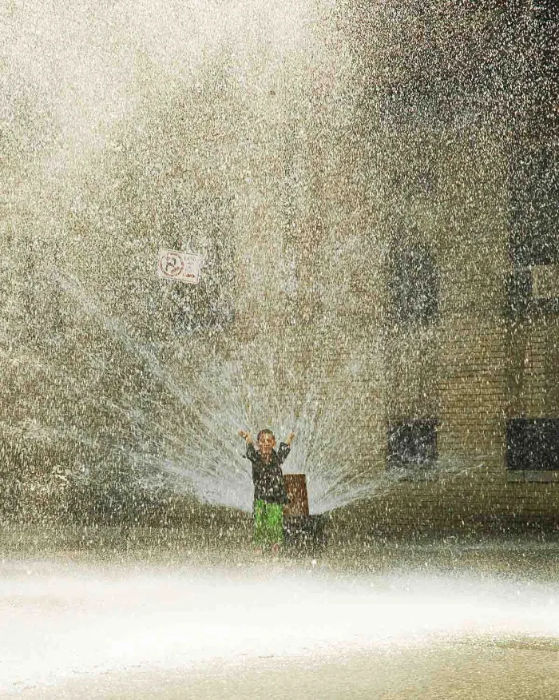
Civility designed by New Yorkers.
To some people, this vision may sound like an impossible dream for a big city. But I don’t think that’s true for most New Yorkers. Yes, we are ultimate realists living in a hard city. We may be skeptical, but we’re not cynical. We know a good dream when we see one. Besides, if we decide to try this in our neighborhood, who’s going to say no to us when there is so much need?
“We can’t continue to ignore the violence that is really engulfing our young people,” Mayor Adams said recently. [A1] “If we don’t intervene, they are on a pathway of a career in violence and we have to stop it.”
Teen violence spiked shockingly last year according to NYPD statistics. Yes, we need to rescue our crime-ridden city, but Adams rightly reminds us that our troubled kids need rescuing too. Working with churches in Harlem, I’ve seen the faces to those troubled kids, and how much they need caring adults.
Together with law enforcement, Concerned Fathers can create a gravitational force – of civility and caring – very different from the “antisocial” gang influence portrayed in “The Streets Were My Father.” Why should gangs be a “fatherly authority” drawing broken kids into their evil world when the true community fathers can draw those kids into a loving environment, and then unify them to a good purpose? When you add Mothers to the family picture, standing alongside the Fathers and Youth, the spirit of a neighborhood can change.
Changing a single neighborhood may not seem like much, but it could have an awakening effect on other neighborhoods. Famed sociologist Robert Bellah warned of the dangers of radical individualism, especially without the influence of Christianity’s call to neighborliness. Yet, Bellah summed up the hope we have at Concerned Families. “The quality of a culture may be changed when two percent of its people have a new vision.”
It’s Everybody’s Birthday on May 1st
Since my Christian leader friend called me about the book “Hardwired to Connect,” Concerned Families has added two major projects that further the concept of “authoritative communities” and positive connections to police.
One project active in the city right now is Birth-Day. Launched here in 2019 by the Manhattan chapter of the men’s friendship group New Canaan Society, Birth-Day is organized as its own separate movement. We work with an ice cream shop called Alphabet Scoop, which is part of a homeless ministry on East 11th. Young Life Manhattan-Bronx recently adopted this fun project to help brighten the lives of our students. Happily, Youth for Christ NYC has now also adopted Birth-Day to bless and give hope to young people in our correctional system.
Birth-Day is our way to celebrate everyone in the community, especially our precious youth (who too often don’t know they are precious). It’s a great example of the kind of “single-moment ministry” that changed my life.
Another project is called NeighborToNeighborProject.com but it is not yet launched in the city. It involves connecting people – and even their buildings, to help secure the neighborhood against emergencies like a dangerous power outage. Once again, our best protection is human connection.

Now Celebrating the Kids of New York
When Birth-Day began in 2012, little did we know we’d launch it in New York City only a few years later, and then actually end up in the Congressional Record honoring the moment. As with so many good things, it started small, serving ice cream sundaes to a few hundred kids in southern Oregon, celebrating everyone’s birthday on the same day. Before long, we were serving sundaes to 10,000 Oregon school kids each year, on or around May 1st – elementary through high school.
More whipped cream please!
By 2019, we started partying with hundreds of smiling kids in the South Bronx. Community Fathers lined the tables to serve sundaes to the kids, while others sat with the children, or crowded together in the lunchroom to sing, “happy birthday.”
The spirit of Birth-Day is catching and for sure, Alphabet Scoop’s great ice cream doesn’t hurt. In 2022 the students at Bronx Studio School for Writers and Artists designed a giant Birth-Day card to send to our new Birth-Day school, Alfred E. Smith Elementary School (PS1) in Chinatown. Then on May 1, 2023, we added another school in Chinatown, PS126 (Jacob August Riis Elementary and Middle School). They got giant cards from both other Birth-Day schools.
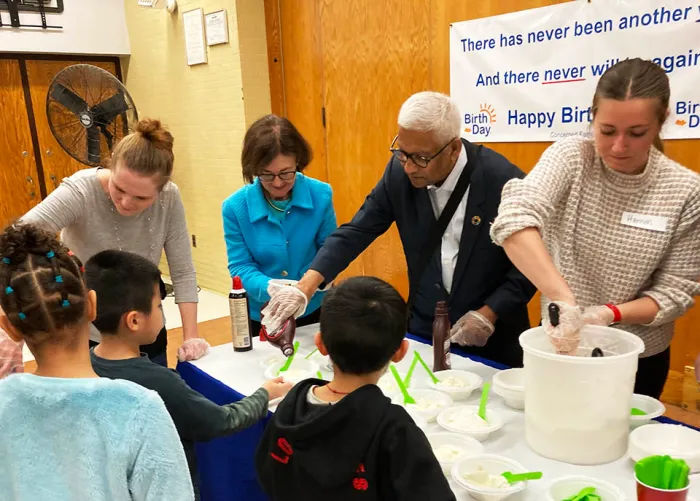
To add to the fun and significance of the day, we were joined by 3 NYPD officers to serve the kids, and 2 more officers dropped by to share the moment, all receiving our cheers and Birth-Day wishes – and an ice cream sundae. What a day!
Try to imagine that happening all over our great city. We already have more referrals than we can handle – but it looks like 2024 will be a very good year.
In keeping with our community parenting mission, we want the students to know that the adults of their city care for them, including the police – we “see them,” and we want them safe and excited about their future. And yes, every year we celebrate them, putting up signs that say, “There’s never been another you and there never will be again.”
Why is that message a key to understanding Birth-Day? Because it’s true – even science says that each child is unique. And we need to make sure our children know they are “one of a kind,” and that something so rare must be precious!
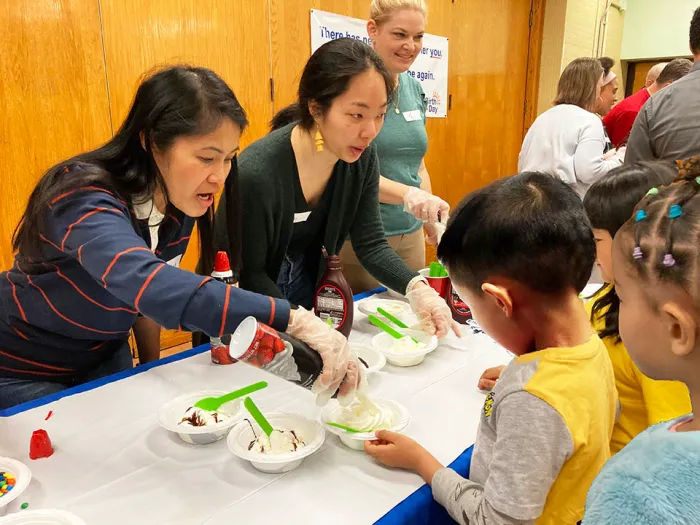
The Big Question
Concerned Families is a system for transformation, just as church is a system for worship. Of course, you can’t have a “system for worship,” because God must show up in our hearts for real worship to happen. Yet a system is still necessary. People must perform church duties for anything to happen. It’s the same with Concerned Families and transformation. Either way though, in church or in community, we work to organize – each doing a job – and then we stand together in patient hope God will move in us.
When people ask if our system is complete the answer is no. It’s not meant to be complete, not only because each neighborhood is different but also because each church body is different, containing unique people capable of causing a spiritual explosion in various unique ways. That’s why the system has such dynamic potential, not even counting partners outside the church.
Ideas will come from the most unexpected sources – perhaps from a new member of the congregation who always sits in the last pew or perhaps from a parachurch youth group nearby – or perhaps from some non-church-going guy from the neighborhood who decides he wants to join Concerned Fathers Against Crime to “keep the kids safe.” Inevitably, neighbors drawn to the spirit of community parenting will get to know each other.
Conclusion: Building Real Relationships
For churches interested, one reason to show your men the documentary “Fallen” is that it humanizes the sacrifices made for us. From 2001 to 2014, America lost 1,832 warfighters in Afghanistan. During that same period, we lost 2181 police officers, men and women who answered the call to protect and serve. Our local churches are full of “community fathers” who have their own call to protect and serve. Once there is trust, a natural bond develops.
We believe that when community fathers decide to stand with their pastors in support of their police precinct, the neighborhood’s spiritual center of gravity can change. And along with it, the social environment can change – moving the community toward a growing sense of mutual respect and away from multi-generational distrust.
The more community support there is, the more police have a chance to do what they want to do – find the balance between over-policing and under-policing. Together our pastors and our police can lead – and only they can lead – an enduring relationship that creates a safe and civil community.
We all know that 99.9% of police officers get up in the morning intending to help people, not hurt them. Yes, these days we may think they don’t care about us. And yes, they may think we don’t care about them. But what if we’re both wrong?
Imagine how your local police would respond if they knew that after a shooting death – when things could get ugly – this caring “church/family movement” led by our pastors and community fathers would stand with the accused cop and call for fairness, knowing it may look bad, but also knowing two simple truths.
First, the officer may be innocent of what looks like a bad shooting, and second, even a bad mistake doesn’t mean a “bad cop.” The more the community knows what the police are up against, the more understanding there will be. And yes, tragically, sometimes genuinely evil things happen, in which case you have honorable people, known in the community – with no political or power agendas – who will call for justice while also calling for calm.
Keeping all doors open is key. Anytime the precinct wants, it can meet with the pastors and community fathers to discuss any situation, and we can do the same. This process leads to a greater public understanding of the reality police confront every day. We hire them to make split-second, life-and-death decisions. And yes, human beings make mistakes. But usually, those split-second decisions save lives.
We have all been through a rough 3 years. Our police officers have often been unfairly judged and rejected because of the images of one “bad cop.” Some have died as a direct result. Our regret won’t change that fact. But trust can be rebuilt on all sides if first, we all try to understand what our own NYPD has just experienced. In a survey of nearly 6,000 NYPD officers, 56% said they would not make the same career choice again. No surprise.
We’ve seen the bullying crowds taunting the police. We all heard the threats of violence against our city when Mayor Adams was elected. We’ve learned the hard way that if we don’t control crime, then crime will control us.
And yes, the TV images of 2020 are burned into our collective memory. But remember also, our police officers lived that moment out on the streets, while also facing COVID dangers (the first NYPD COVID deaths occurred in March 2020 and cascaded into scores of fatalities).
Truly, just as our hearts broke for George Floyd and his family, our hearts should break for what some New Yorkers put our police officers through (and how we as a nation behaved). And still every single day these men and women stand against crime, facing an ugly reality.
They see the damage done to families. They see the blood in the streets. They risk their lives for our children each time they go out on patrol. And yet they live in fear that one split-second decision, “one horrible mistake,” will bring on “the accusers,” putting their job in jeopardy and even their life, but more, declaring guilty all who wear the blue – making all police a target.
Veteran officers know that after a shooting when “the heat is on,” they can’t depend on anyone to stand with them except their police organizations and their family. But most get up in the morning with the single goal of keeping the peace – and coming home safely to their children. Thankfully, our mayor understands this as a former cop himself.
Most New Yorkers are glad Mayor Adams supports the NYPD – and that he didn’t back down from the resulting threats. We are thankful he wants to tackle the mentally unfit vagrant problem and we hope for good decisions regarding crime issues, working along with our city council and state legislature. But whatever way our political leaders decide to fix the situation, there is no fixing this era of distrust unless the NYPD knows their community will stand with them.
It starts with us.
Yes, officers must respect the people they serve, but that respect must be returned – and making our police into villains must stop. Those who do it should be challenged by a greater authority – the loving Dads & Moms who care about our neighborhood and our children. After all, the NYPD stands between us and the true villains of the city, the ones who kill our community spirit, the ones who destroy neighborhoods, bully the weak and ruin the lives of innocent people.
I believe there is a good chance most political leaders, and even the media, will see that the community fathers, mothers, and youth working together to help their neighborhoods are the healing heart of our city. Let them see it. Let our police officers see it – and let their friends and families see it. Our experience alone might help us to reclaim the civility necessary to build a safe and happy future together. Because you never know how people will respond to love and a little genuine respect. And because we all love New York.
